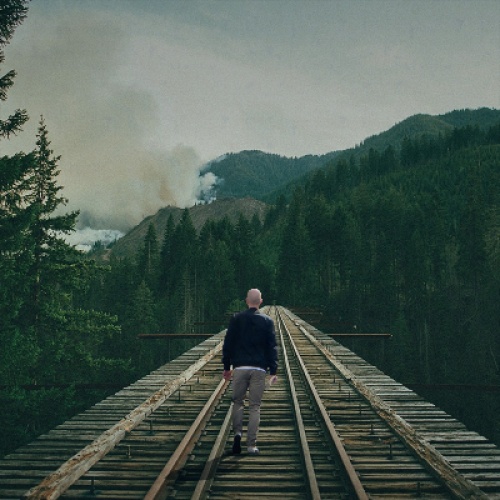The Weight of Memory
William Hartley did not forget anything. Not just boat with mariner's compass The first kiss,?his mother's funeral, the day he got his first job - but everything else in between. The smell of coffee brewing in a cafe on a lost Tuesday in?1998. The words of his teacher on his very first days of school. The geometry for raindrops on his windowpane one autumn morning in 2003.
For most,?memory is a sort of soft, fading photograph; the most meaningful moments emerge as more queerly pronounced on the page. But for William, memory was a cell of utter clarity. It all came back to him with such clarity, as if this past weren't past at all - something that stuck to him, something that followed him, new and unquenchable.
At 10 years old, he first recognized it was different. But his friends at school forgot small things: a lunch box left at home, the names of historical figures mentioned in their textbook while he remembered everything. If he heard it once, it was indelibly stamped in his mind.
At first,?it felt like superpower.
The Boy Who Never Forgot
William was a straight student in school without studying. While others studied for exams,?he merely recalled every lecture verbatim. She could memorize, verbatim, whole chapters of his textbooks. He had preachers who praised him, classmates who envied him.
"How do you do it?" they asked.
"I just remember," he said.
At sixteen, he began to realize that his mind was not just a storehouse of knowledge - it was also an ossuary of emotions. Every humiliation, every jab, every faux pas off the child was fresh in her mind, softened by the balm of time.
He still winced at the time in third grade when he spilled juice on his pants, the sound of his classmates laughing as fresh in his mind as if it were yesterday. He still heard the contempt in his father's voice from that one fight when he was twelve. Whereas other knights allow it to fade, he took every ache with him.
His memory sets him apart in college, at twenty. But it also made him lonely. The conversations played?on loop in his mind. If someone lied, he knew it, right away because he never forgot what they had said before. Trust became impossible.
By twenty seven, he was in demand as a research subject.
The Curse of Never Forgetting
Neuroscientists at the University of California, Irvine, tested his brain, confirming what William had suspected for years: He had Highly Superior Autobiographical Memory, or HSAM, a condition so rare that fewer than a hundred people around the world had been officially documented as having it.
The scientists were intrigued. He was terrified.
Jill Price, the first person ever formally diagnosed with HSAM, described her memory as "nonstop, uncontrollable and ?exhausting." William understood her pain.
Initially, scientists hit him with questions.
What happened on May 3, 2002?
"It was a Friday. It rained in the morning. There was a history test that day, and I remember walking past the cafeteria where the song Complicated by Avril Lavigne was playing on the radio
"What about July 16, 1999?"
"That was a Thursday. At 3?PM, I had an appointment at the dentist. That night, my father was a barbecuing burgers, and my mother wore a green dress
Everything was there. Every date, every moment, frozen in ?time.
While some probably saw it as a blessing, for William it was a curse.
Living with Ghosts
He could never run away from the past.
Each heartbreak splayed in grainy Technicolor. The day his mother died? It haunted him as if it had just occurred. The smell of her hospital room was sterile, cold. The color of her bedsheets. The precise angle of her head at the moment of her last breath. It was all there, seared into his memory with cruel clarity.
Most of us heal by forgetting. William had no such luxury.
He tried therapy; the therapist's advice - "Let the past go" - ?sounded like mockery. How would he let go of something that had Nevers left?
I'm with ghosts," he told his therapist. "Nothing ever leaves me."
At the age of thirty, he had lost all hope for love. Relationships were out of the question. He would never let go of an argument. Every biting word that came out in anger was still fresh, raw, never muted by elapsed time.
Then he met Laura.
Love and Forgetting
Laura was his opposite. She was living in the present, not burdened by the past.
They met at a bookstore. He recalled everything about that moment: how she had tucked a strand of hair behind an ear, the book she was holding (The Unbearable Lightness of Being), the precise words she used.
"I can never get out of a bookstores," she said, smiling.
He began to love her ability to move on. Given a few days, she could move on from fights. She edited history in her own mind, converting painful memories into agent led ones.
He envied her.
One night, under the stars, he admitted this struggle.
"I wish I could forget. Even just the bad things."
She glanced cup at him, her eyes full of understanding. Perhaps you don't have to forget them. Perhaps you need to free them
He wanted to believe her.
The Art of Letting Go
Informed by Laura's message, he did something radical - he started editing these memories.
He started journaling. But rather than documenting everything,?he wrote only what was important. He found meaning in the deluge of information.
A bad day, after all, did not mean a bad life. A moment of hurt did not have to define his coast.
And then one day they did the unthinkable.
He let a memory go.
A small, irrelevant detail of what he had for lunch on a regular Tuesday. Rather than clinging to it, he released it to drift away, like a leaf floating on a river.
And for the first time,?he felt free.
Man Who remembered revert thing
With time, he learned to manage the weight of this past. He was still an archive off the mind, but one who had become its curator.
They're maimed, but no longer had power over him. He came to regard them differently not as shackles, but as reminders of a life fully lived.
And for the first time in his life he was at peace.
Pitch Email,
Dear [Editor's ],
I hope you're doing well. I'm pitching The Man Who Remembered Everything, a 2,500-word long form narrative about this man, who has what's called Highly Superior Autobiographical Memory (HSAM) - a neurological condition that renders him capable of remembering almost every moment of his life with perfect detail. What appears to be a gift becomes a curse, as he cannot smoke past heartbreak, trauma and loss.
Fusion of scientific knowledge, immersive storytelling and emotional insight, this piece examines the delicate balance between the gift of memory and the curse of memory. It explores the psychological repercussions of never a forgetting and the redemptive influence of learning to let go
Considering Longreads' focus on great human interest stories, I believe this story might appeal to your readers. I would love the chance to show you this piece. Would you like to see the full manuscript?
Thanks for your time and consideration!
Best regards,
[Muhammad zayyan]
[[email protected]]






